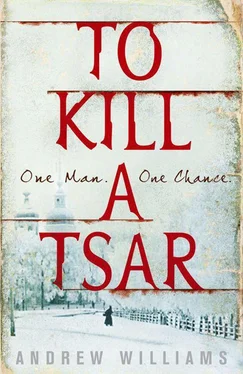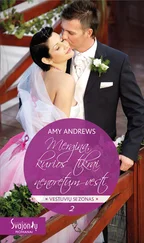‘Not to me.’
‘The police would want to know what a smart foreign doctor was doing in Peski on a Sunday afternoon. And they would want to know who was with you,’ she said. ‘Leave it to the dvornik. He will say he found the body outside.’
‘I see. But why didn’t you say so? Why throw a tantrum?’
‘Wasn’t it ladylike?’ she said with something close to a sneer in her voice.
‘It was ill-mannered.’
Her shoulders seemed to drop a little, and she closed her eyes, the anger and tension draining from her: ‘Yes, perhaps. You won’t leave your name?’
‘No. If it’s so important, no, I won’t.’ He picked up the paper, ripped it in half and offered her the pieces: ‘Here.’
Anna took them without making eye contact and tore them in half again: ‘I’ll speak to the dvornik.’
Hadfield waited beside the body. He was astonished by her outburst. After a few minutes she returned and began clearing away the things they had used for the surgery in silence, at pains to avoid his gaze. She was clearly a little embarrassed and would probably have welcomed an excuse to soften the atmosphere that lingered in the room like the smell of formaldehyde. But Hadfield was content to watch her, enjoying her discomfort.
‘I will take you to the church,’ she said, turning to look at him at last.
‘Thank you.’
Standing awkwardly at the school door, Hadfield could not suppress an acute sense of disappointment and frustration. This was not how the day was supposed to be, and he fought to extinguish the ember of resentment that was still glowing inside. Anna was in conversation with the dvornik who was leaning against the door jamb, a sullen look on his face. Hadfield cleared his throat and was on the point of addressing her when she turned sharply to look at him: ‘Do you have a few kopeks you can give him?’
‘Of course. Twenty?’ He gave them to the dvornik, who counted them laboriously then held out his greasy palm for more.
‘That’s enough,’ said Anna sharply, but the grizzled old yard keeper stood there unmoved, his hand held flat like a Russian Buddha.
‘Oh, for God’s sake, take this!’ Hadfield handed him twenty kopeks more. ‘Satisfied?’
The dvornik gave a broad toothless grin.
‘The old devil!’ Anna said as the door closed behind him.
‘What did I buy?’
‘The right story, of course. He found the body. We weren’t here.’
‘Ah.’
‘This way.’ She set off down the street at a brisk pace, passing from sunlight into the shadow of the four-storey lodging house opposite. From every open window, from the doorways and the yards on that hot summer Sunday, the restless sound of humanity packed cheek-by-jowl into single rooms and corners. He watched her stride purposefully on as if careless whether he followed or not: past a little group of children, barefoot, in rags, racing sticks across a puddle of dirty water, and on a little further to where three immodestly-dressed young women were gossiping in a doorway — one of whom directed a remark at Anna then burst into a peal of raucous tipsy laughter. He caught up with her at the end of the street.
‘Miss Kovalenko, if you have no other appointments, can I persuade you to walk with me a little?’
She turned to him with a shy smile, her blue eyes twinkling like sunshine on ice. ‘Yes, you can persuade me.’
From St Boris and St Gleb, they ambled north along the bank of the Neva, and Hadfield told her of his first meeting with the Figners, of their time together in Zurich and of the unhappy years he had spent in London since. ‘It was always my ambition to return to St Petersburg.’
‘To leave your home?’
‘St Petersburg is my home.’
‘And General Glen is your uncle?’
He smiled at the disingenuously casual way the question was slipped into their conversation. ‘Yes. Of course, we don’t see eye to eye on many things but he has been very kind to me.’
‘Does he know about your time in Switzerland, your views?’ she asked.
‘I try not to talk politics.’
‘Do you go to grand parties with him?’
‘Sometimes.’
‘What are they like?’
‘What are they like?’ He turned to look at her to be sure she wasn’t teasing. ‘Actually, rather dull.’
But Anna was not to be deflected and pressed him to describe a ball he had attended, from the sparkling crystal to the servants and the dance card, and — in so far as he was able — the dresses of the society ladies. And although he failed to do justice to the opulence of the occasion in his rather clinical descriptions, she seemed captivated by the picture he painted for her.
‘But ask the Figners! I’m sure they’ve been to fashionable parties and could tell you much more about dresses than I can,’ he said.
She pretended to look shocked. ‘What on earth would they think of me?’ she asked, and her shoulders shook a little with silent laughter.
In the gardens of the Smolny, they settled on a bench close to the School for Noble Girls and he asked her of her family and her home. Her father had been an army officer and a gentleman with an estate near Kharkov, her mother one of his servants. As a small child she had lived with an old babushka in the village, and on winter nights had sat at the stove and listened to folk tales in the Ukrainian language and stories of Cossack heroes. With the emancipation of the serfs, Colonel Kovalenko had used his influence to register Anna as a member of the meschanstvo — the lower middle class — and sent her to the local gymnasium. She was never close to her father, she said, even as a young girl the thought that her mother was no more than a chattel who could be sold to another member of the gentry was intolerable. At school she had been teased and bullied because she was illegitimate, and even her father’s servants spoke of her as ‘the bastard’ behind his back. One summer her father had hired a student who had been exiled for his part in the Polish Revolt to tutor her, and he had spoken of his own country’s struggle for freedom. ‘Then someone gave me a copy of Kondraty Ryleev’s poem “Nalivaiko”. Do you know it?’ she asked. ‘It had a great effect on me. It’s the story of a Ukrainian uprising, of the struggle for justice and freedom: “There is no reconciliation, there are no conditions / Between the tyrant and the slave; / It is not ink which is needed, but blood, We must act with the sword.” There — what do you think of that?’ Anna’s eyes were shining and she was twisting her small hands in her lap.
‘Yes, I…’ He was groping for something that might do justice to her feelings.
‘And you know Ryleev gave his own life for freedom!’ Her voice was shaking with emotion. ‘He was executed by Tsar Nicholas. Freedom and revolt always walk arm in arm with suffering and death. That is what history teaches us.’
She turned away, but not before he saw her brush a tear from her cheek. They sat there in silence for a minute or more as well-dressed, comfortable Petersburg ambled past, promenading couples, children in straw hats and lace with ruby and plum coloured bows and sashes, merchants in light summer suits, a nanny with the latest English perambulator, a peaceful, ordered, somnolent scene as remote from the revolution and sacrifice that filled Anna’s thoughts as it was possible to be. Before he could speak to her again, the bells of the Smolny Cathedral began to chime for the evening service and roused by their restless rhythm, she rose quickly to her feet. ‘I must go.’
It was apparent from her face that there was little point in attempting to persuade her to change her mind. As they strolled slowly through the garden towards the road, he asked her about the children she taught at the school in Alexandrovskaya and the life she lived in the village.
Читать дальше












